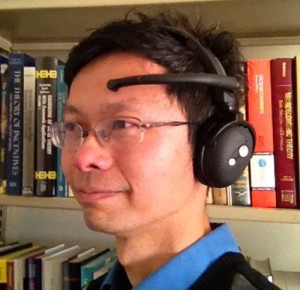Brainwave Authentication

It's no secret that the concept of ordinary passwords is no longer able to provide an adequate level of security. Some organizations like Google are already looking for a replacement . One of these alternatives is biometric authentication.
A group of students from the UC Berkeley School of Information under the guidance of Professor John Chuang, taking Neurosky Mindset as a basis for about $ 200, created a system that uniquely identifies the user based on the EEG readings.
"We found that brain activity data, even collected using low-cost household EEG sensors, can be used to authenticate users with high accuracy."
Scientists conducted a series of experiments. Volunteers were asked to complete 7 tasks: three identical for each test subject (for example, focus on breathing, submit a finger up and down movement, etc.) and four related to a personal secret: submit a movement from a sport to choose the test person, silently count objects belonging to a particular group, play any song in your head, and finally, just concentrate on your thoughts. During the experiments, the scientists took EEG data.
It turned out that performing any of these tasks is sufficient to uniquely identify the user by his brain activity. Moreover, the “with secret” tasks did not show any significant efficiency compared to the usual ones. The subjects willingly performed simple tasks, but not too boring ones. Favorite tasks were to count objects of the conceived color, mental singing of a favorite song and just focus on breathing.
')
Source: https://habr.com/ru/post/175941/
All Articles